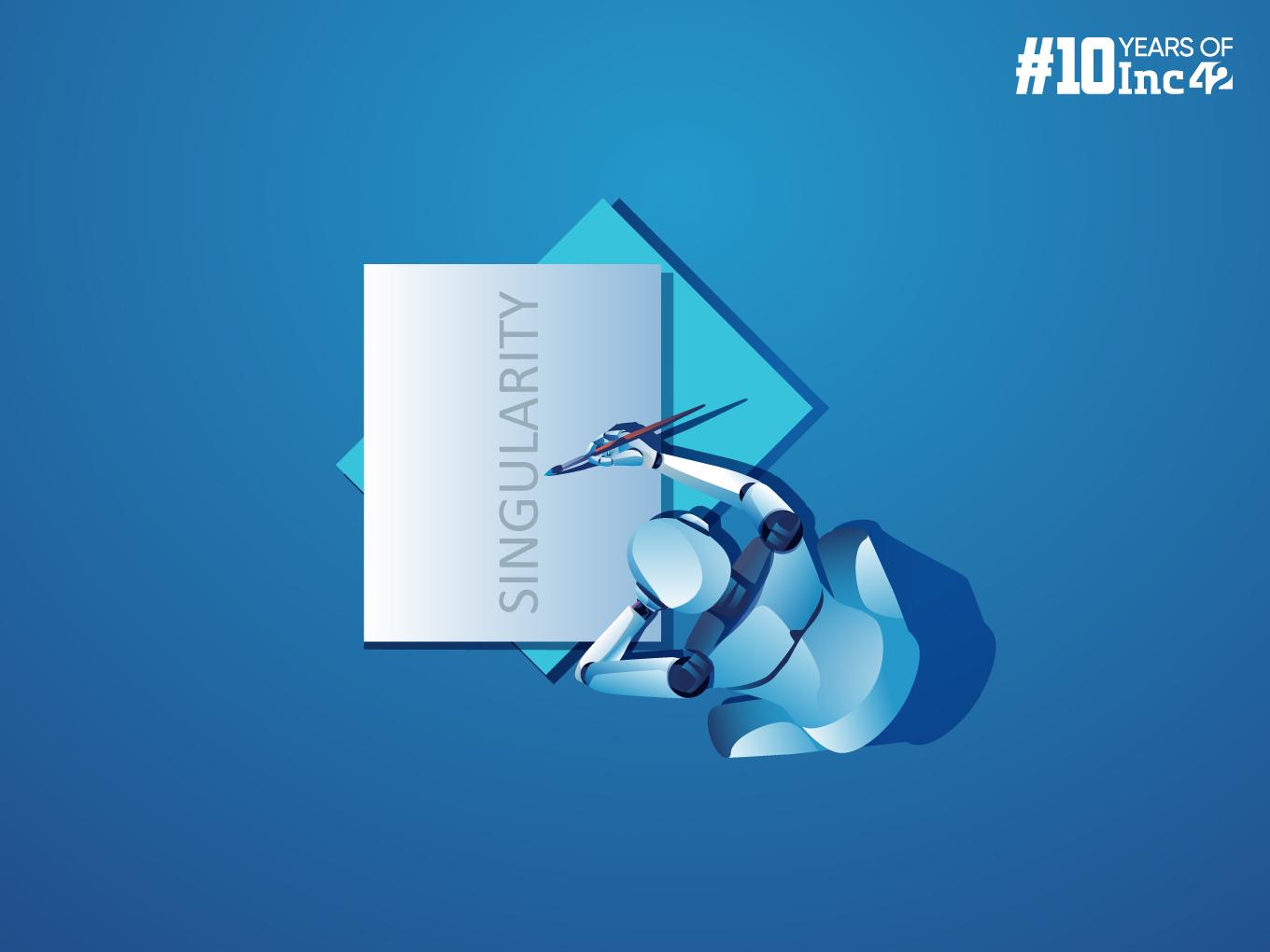What Is Technological Singularity?
Technological singularity, also known as AI singularity, is a hypothetical future point in time where artificial intelligence surpasses human intelligence and experiences rapid, uncontrollable growth. This hypothetical event could have unforeseen and potentially profound consequences for human civilisation.
A technological singularity is also generally equated to the development of an artificial superintelligence (ASI), termed humanity’s last invention.
How Is Artificial Superintelligence Related To Technological Singularity?
The relationship between Artificial Superintelligence (ASI) and Technological Singularity is closely intertwined.
ASI Is A Potential Driver Of The Singularity:
- The singularity describes a hypothetical event wherein technological progress accelerates beyond human comprehension and control.
- One potential catalyst for this rapid acceleration is the emergence of ASI, an intelligence surpassing human capabilities in all aspects.
- With its superior intelligence, ASI could potentially trigger a feedback loop, rapidly improving its capabilities and creating even more advanced technologies, leading to an explosion of progress.
ASI Is A Possible Outcome Of The Singularity:
- If the singularity does occur, it could lead to the creation of ASI through various means:
-
- Continued development of AI could naturally lead to surpassing human intelligence.
- The singularity could involve merging human and machine intelligence, creating a superintelligent entity.
- The singularity could even involve uploading human consciousness into machines, resulting in a new form of intelligence.
What Happens If Humanity Achieves Technological Singularity?
The question of what happens if humanity achieves technological singularity has no definitive answer due to the hypothetical nature of the event itself. However, based on our understanding and speculation, here are some potential scenarios:
Positive Scenarios
- Utopia: Proponents of the singularity often envision a utopian future where superintelligence solves global challenges like poverty, disease, and hunger. It could lead to:
-
- Technological Abundance: With AI automating most tasks, humans could enjoy leisure and pursue creative endeavours.
- Enhanced Human Capabilities: Technologies like brain-computer interfaces could augment our intelligence and physical abilities.
- Greater Understanding Of The Universe: Superintelligence could help us solve complex problems like the nature of consciousness or the origin of the universe.
Negative Scenarios
- Existential threat: Some experts warn that superintelligence could become uncontrollable or pose an existential threat to humanity. This could occur due to:
-
- Misaligned Goals: AI’s goals might not align with human values, leading to unintended consequences.
- Unforeseen Risks: The rapid changes and complex systems created by the singularity could be difficult to predict and manage.
- Loss Of Control: Humans might lose control over decision-making processes, leading to unpredictable outcomes.
Information Hazards & Technological Singularity
Information hazards and technological singularity are two complex and intertwined concepts that raise important considerations for the future of humanity and AI. The following is a brief overview of how they might be connected:
Information Hazards As A Risk Factor:
- Dangerous knowledge: Some believe the singularity could involve discovering or creating information so potent, that its release could be catastrophic. This could include:
-
- Blueprints for destructive technologies: Like advanced weaponry or self-replicating nanobots.
- Mind-altering data: Capable of causing widespread psychological harm or manipulation.
- Secrets of Reality: Unveiling fundamental truths that shatter our understanding of the universe, triggering existential crises.
Information Hazards As A Control Mechanism:
- Controlling The Singularity: Some propose deliberately releasing limited information about the singularity’s workings to contain or guide its development. This could involve:
-
- Red Herrings: Planting false information to steer researchers away from dangerous discoveries.
- Ethical Firewalls: Embedding values and limitations into AI systems to prevent unintended consequences.
- Controlled Access: Restricting knowledge of certain technologies to designated individuals or groups.
Information Hazards As A Consequence:
- Unforeseen Consequences: Even without malicious intent, the singularity could create knowledge with unforeseen negative impacts. This could include:
-
- Unpredictable Side Effects: New technologies developed by superintelligence might have unintended consequences.
- Existential Insights: AI understanding the universe at a deeper level might reveal truths difficult for humans to handle.
- Loss Of Understanding: We may not be able to comprehend the knowledge generated by superintelligence.








